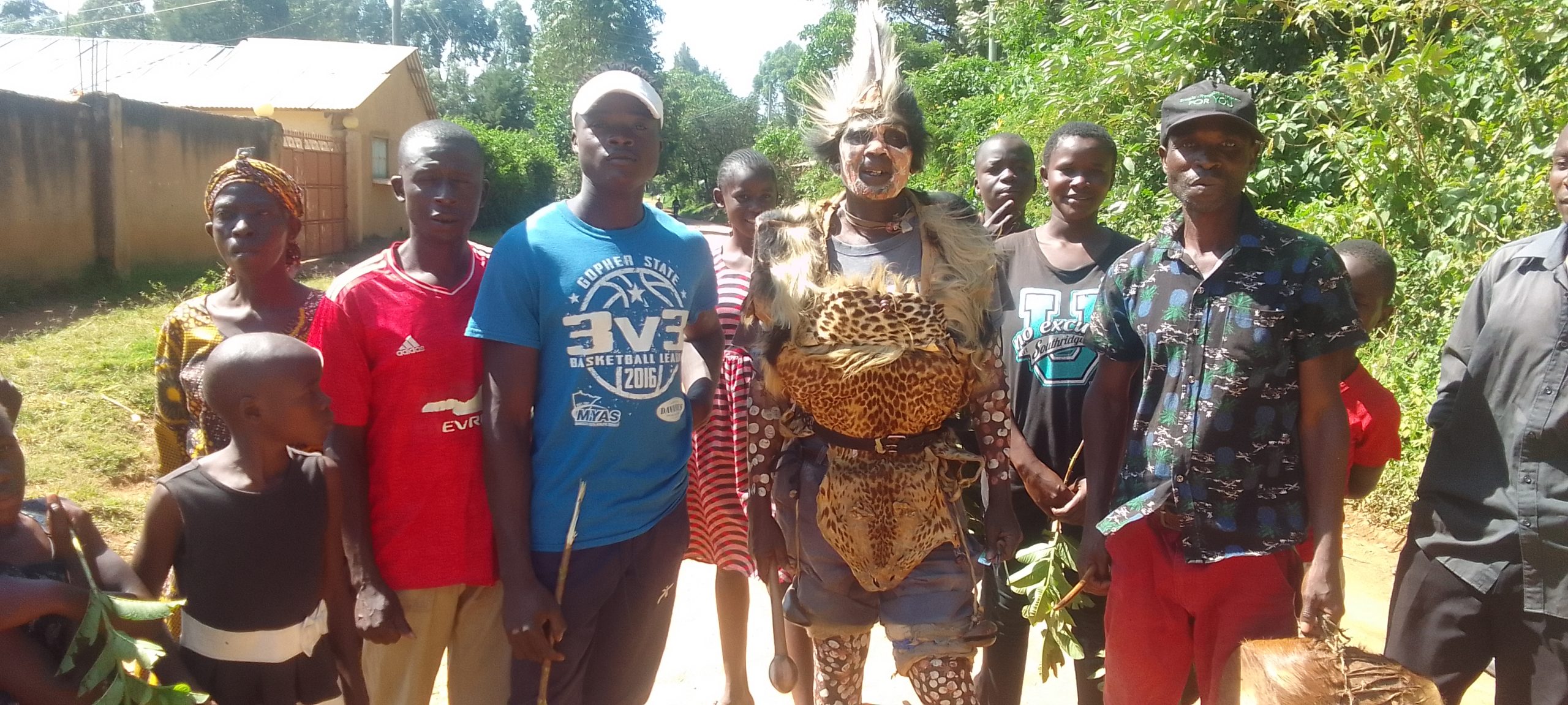Rarely do some people turn their backs on culture because they enjoy it as it was established by their ancestors.
Ngariba Isaac Shivoya, born in Lubao village in Isukha North ward, while maintaining this tradition, mourns his brother by gathering community members to join him in a cultural procession singing songs related to the culture.
He visits many places during the circumcision season including Shinyalu, Malava, Ikolomani, and others, and he says he has also learned to perform circumcisions in hospitals.
In his work, since officially taking over from his ancestors in nineteen ninety-six, he has not encountered any complications as he claims that there have been no complaints from anyone who has passed through his hands.
Shivoya has a good reputation and has upheld the cultural practices passed down to him, making him a respected figure in the community.
Isaac Shivoya’s dedication to preserving and practicing cultural traditions is commendable. He not only performs circumcision ceremonies but also educates the younger generation about the importance of these customs. By engaging the community in these cultural practices, Shivoya is ensuring that the heritage and values of his ancestors are passed down to future generations.
His commitment to upholding cultural traditions extends beyond just the ceremonial aspects. Shivoya also serves as a mediator and counselor in conflicts within the community, using his knowledge and understanding of traditional customs to help resolve disputes. This demonstrates how deeply ingrained culture is in every aspect of life for Ngariba Isaac Shivoya, highlighting the integral role that tradition plays in maintaining social harmony and unity.
In a rapidly changing world where traditional customs are often neglected or forgotten, individuals like Ngariba Isaac Shivoya act as custodians of cultural heritage, ensuring that these time-honored practices are not lost to modernization. By celebrating and preserving these customs, they enrich and strengthen the fabric of society, fostering a sense of identity and belonging among community members. Ngariba Isaac Shivoya’s efforts exemplify the importance of valuing and upholding cultural traditions in a rapidly evolving world.
A circumciser, also known as a “ngariba” in some communities, is a person who performs circumcision rituals on boys as part of cultural or religious practices. The circumciser is usually a respected and experienced individual within the community, tasked with carrying out the procedure in a safe and traditional manner. The circumciser often undergoes training and apprenticeship to learn the proper techniques and rituals associated with circumcision ceremonies.
In addition to performing circumcisions, the circumciser plays an important role in educating the community about the significance of the ritual and ensuring that it is carried out with respect and adherence to tradition. Circumcisers are often called upon to lead ceremonies, provide guidance to families, and maintain the cultural integrity of the practice. Their expertise and knowledge of customary rites make them key figures in upholding and preserving cultural identities and traditions.
By Wycliffe Sajida


